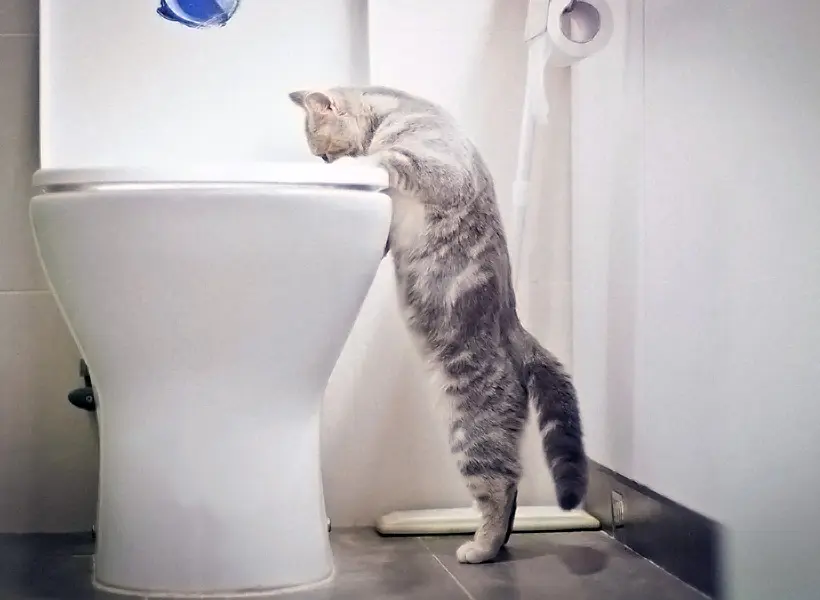The Dangers of Flushing Cat Poop Down Your Toilet - Advice for Better Disposal
The Dangers of Flushing Cat Poop Down Your Toilet - Advice for Better Disposal
Blog Article
What are your thoughts concerning How to Dispose of Cat Poop and Litter Without Plastic Bags?

Introduction
As cat owners, it's important to bear in mind just how we deal with our feline buddies' waste. While it may appear practical to flush pet cat poop down the commode, this method can have destructive consequences for both the setting and human wellness.
Alternatives to Flushing
Thankfully, there are safer and much more accountable ways to take care of feline poop. Consider the complying with choices:
1. Scoop and Dispose in Trash
The most typical approach of throwing away pet cat poop is to scoop it into a naturally degradable bag and toss it in the trash. Make sure to make use of a devoted clutter inside story and get rid of the waste without delay.
2. Usage Biodegradable Litter
Choose eco-friendly pet cat clutter made from products such as corn or wheat. These litters are environmentally friendly and can be securely dealt with in the trash.
3. Bury in the Yard
If you have a yard, take into consideration hiding pet cat waste in a marked location away from vegetable gardens and water sources. Make certain to dig deep enough to stop contamination of groundwater.
4. Set Up a Pet Waste Disposal System
Invest in a pet waste disposal system particularly developed for pet cat waste. These systems use enzymes to break down the waste, lowering smell and environmental influence.
Wellness Risks
Along with ecological problems, flushing feline waste can also posture health and wellness threats to human beings. Pet cat feces might contain Toxoplasma gondii, a bloodsucker that can trigger toxoplasmosis-- a potentially extreme health problem, especially for expectant women and people with weakened immune systems.
Ecological Impact
Flushing feline poop presents hazardous microorganisms and bloodsuckers into the water system, posturing a significant risk to water ecological communities. These contaminants can negatively impact aquatic life and compromise water quality.
Conclusion
Accountable animal ownership prolongs beyond offering food and shelter-- it also involves correct waste monitoring. By avoiding purging feline poop down the toilet and opting for different disposal approaches, we can lessen our environmental footprint and shield human health and wellness.
Why You Should Never Flush Cat Poop Down the Toilet
A rose by any other name might smell as sweet, but not all poop is created equal. Toilets, and our sewage systems, are designed for human excrement, not animal waste. It might seem like it couldn’t hurt to toss cat feces into the loo, but it’s not a good idea to flush cat poop in the toilet.
First and foremost, assuming your cat uses a litter box, any waste is going to have litter on it. And even the smallest amount of litter can wreak havoc on plumbing.
Over time, small amounts build up, filling up your septic system. Most litter sold today is clumping; it is made from a type of clay that hardens when it gets wet. Ever tried to scrape old clumps from the bottom of a litter box? You know just how cement-hard it can get!
Now imagine just a small clump of that stuck in your pipes. A simple de-clogger like Drano isn’t going to cut it. And that means it’s going to cost you big time to fix it.
Parasitic Contamination
Believe it or not, your healthy kitty may be harboring a nasty parasite. Only cats excrete Toxoplasma in their feces. Yet it rarely causes serious health issues in the cats that are infected. Most people will be fine too if infected. Only pregnant women and people with compromised immune systems are at risk. (If you’ve ever heard how women who are expecting are excused from litter cleaning duty, Toxoplasma is why.)
But other animals may have a problem if infected with the parasite. And human water treatment systems aren’t designed to handle it. As a result, the systems don’t remove the parasite before discharging wastewater into local waterways. Fish, shellfish, and other marine life — otters in particular — are susceptible to toxoplasma. If exposed, most will end up with brain damage and many will die.
Depending on the species of fish, they may end up on someone’s fish hook and, ultimately on someone’s dinner plate. If that someone has a chronic illness, they’re at risk.
Skip the Toilet Training
We know there are folks out there who like to toilet train their cats. And we give them props, it takes a lot of work. But thanks to the toxoplasma, it’s not a good idea.

I am just very intrigued by How to Dispose of Cat Poop and Litter Without Plastic Bags and I hope you enjoyed reading the entire post. Those who liked our page if you please don't forget to share it. Bless you for your time. Come back soon.
Request Your Service Report this page